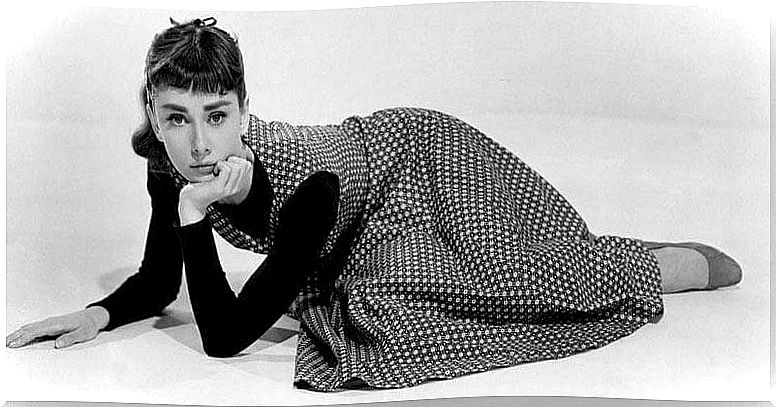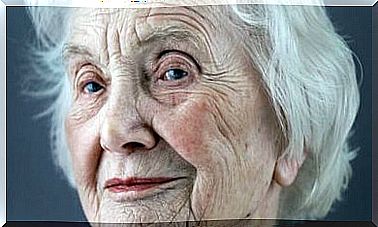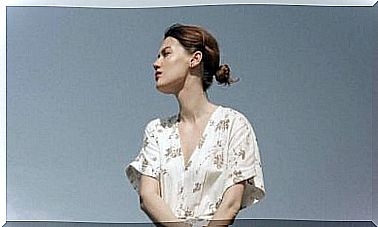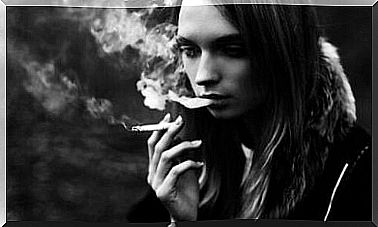Audrey Hepburn, Psychological Portrait

Despite the more than 20 years since her death, Audrey Hepburn remains an attractive icon, which Andy Warhol once immortalized in his Pop Art paintings. Her face and figure represent a model of eternal elegance and distinction that, even today , the new generations want to imitate, despite the risks. And one of the feelings conveyed, since the beginning, by the classic image of Audrey Hepburn peeking through Tiffany’s windows, is that beauty is associated with thinness.
A fact very close to the reality in which we live today. The eating disorders suffered by the actress remained, for a long time, under the pressure of silence. For many, all that remains is the pretty face represented by a fragile beauty, which fashion tries to imitate; and few people are able to glimpse the woman who has surpassed herself, to give her best to others.
1. The obscurity of childhood
The traumas suffered in childhood are the shadows that accompany us in maturity, the suffering never goes away completely; it remains a challenge to be met. Audrey Hepburn’s childhood was marked by World War II. Despite being related to the Dutch nobility, its distinct position changed drastically the day half a million German soldiers invaded Holland; then resources and food became scarce. Hunger and malnutrition not only marked his childhood, but also marked his adolescence; her eyes had to see part of her family murdered, like her brother, who was taken to a German forced labor camp and stricken with an illness, so she had to earn a living the only way she could: dancing; thus helping the Dutch resistance to Nazism.
When the war ended, Audrey Hepburn suffered from malnutrition, anemia, asthma, lung problems and a depression that took years to overcome. According to her, one of the best memories of that time, and which would mark her for a lifetime, was the humanitarian arrival of the United Nations bringing blankets, food, medicine and clothes… Kindness still seemed to exist in the world, and that was reason for if you have hope.
“I once heard the following phrase: Happiness is having health and a bad memory. I would have liked to have invented her, because she is absolutely right.” A. Hepburn
2. Golden years, years of sadness
The triumphs arrived: films such as “Holidays in Rome” or “Luxury Doll” gave her the power to establish a certain degree of influence and fame, a situation in which it is necessary to know how to keep the balance.
Audrey Hepburn was an intelligent and highly sensitive woman, who always got her roles right; he conveyed emotion very well to captivate the viewer and, according to his own words, he always needed affection and understanding, feelings he could not find in his marriage to Mel Ferrer; sadness was her most usual companion… a shadow that turned to despair the day she miscarried her first child when she fell from a horse during a recording.
Depression and guilt returned to her life with the same intensity as in the past. Added to depression was self-demanding, sometimes irrational. He knew that part of his success was based on his elegant and delicate physique, that’s when he declared the following in an interview: “If in the past I could live without food, I can also do it now. I see myself forced to control food intake”. Anorexia nervosa was a cruel companion, with which Audrey Hepburn lived her whole life.
“As you grow, you will find that you have two hands: one to help yourself and one to help others.” A. Hepburn

3. The simplicity of happiness
The years of tragedy and war losses were never erased from Audrey Hepburn’s mind, her need to find love was not entirely satisfied either: two broken marriages and various disappointments were often the blade that cut through her sleepless nights; it was from there, then, that the desire to help, to give affection and affection to people in need grew.
It was then that, in 1988, cinema was practically forgotten about his life, when he dedicated between six months and a year to UNICEF, the emergency fund for children. The real secret of happiness, for her, was never her successful career as an actress, or the admiration she had from the public, but her eagerness to receive affection and the need to offer affection to others. Sometimes the door to satisfaction is not at its highest; it is simply in ourselves.
Source: “Audrey Hepburn, an intimate portrait”. (Diana Maychick, 1994)









